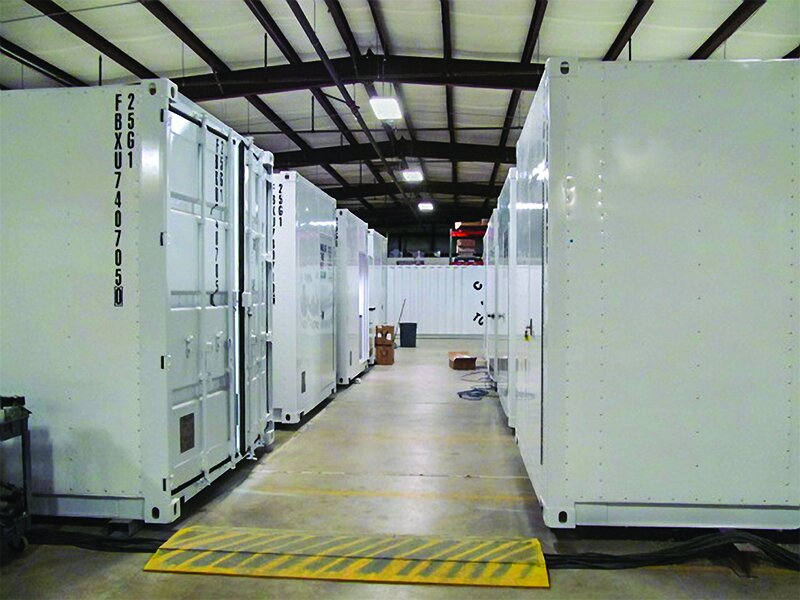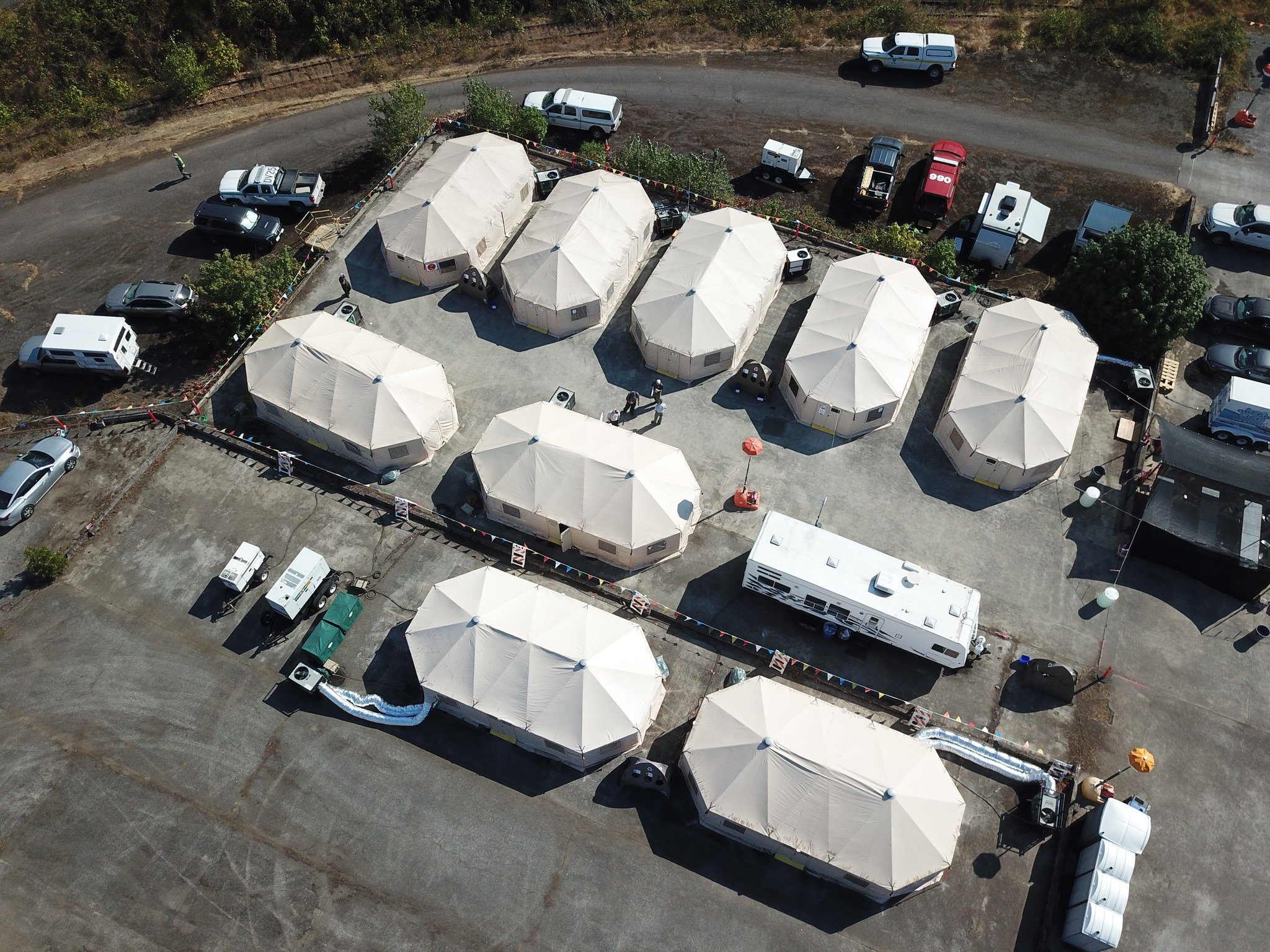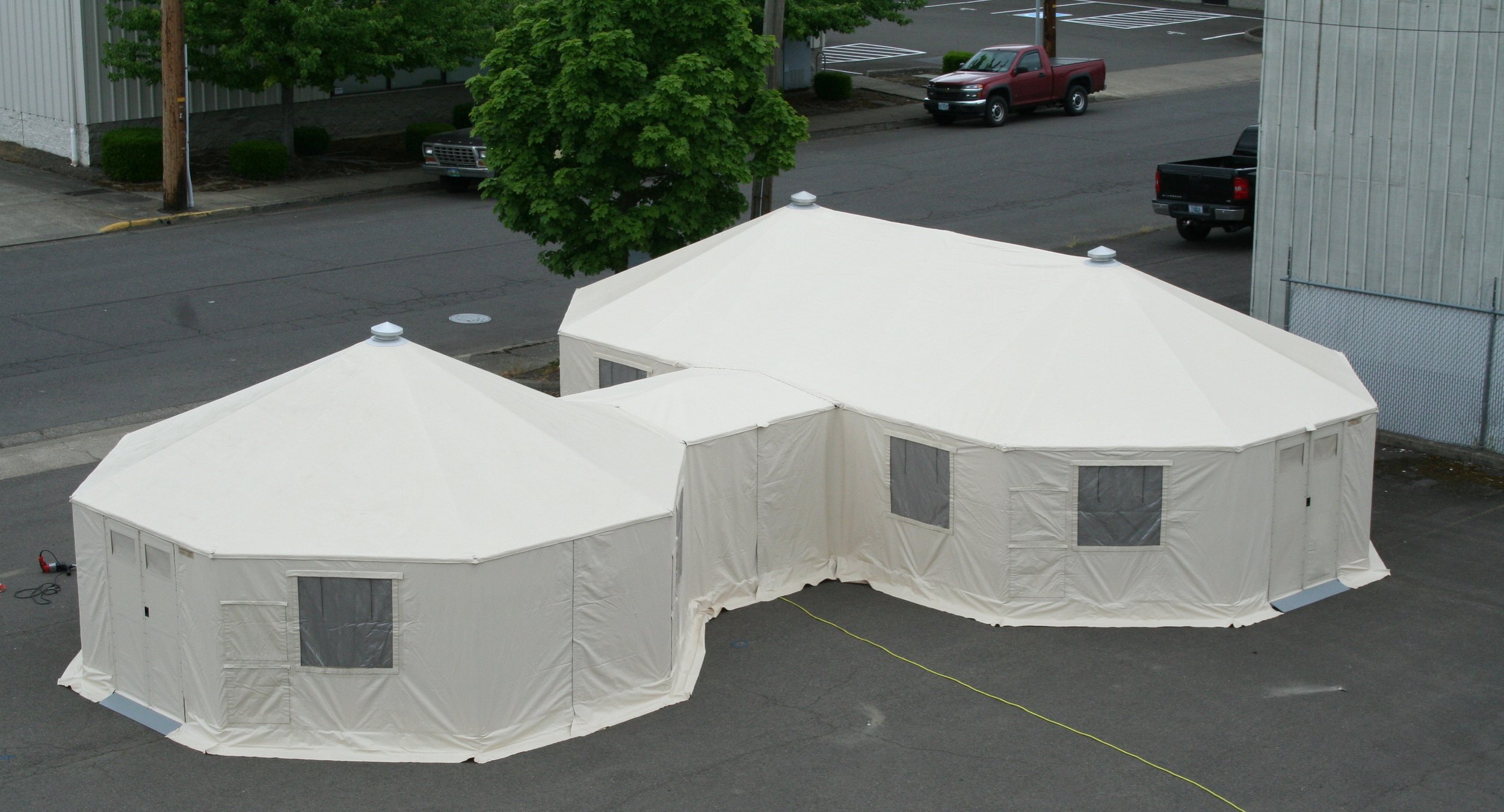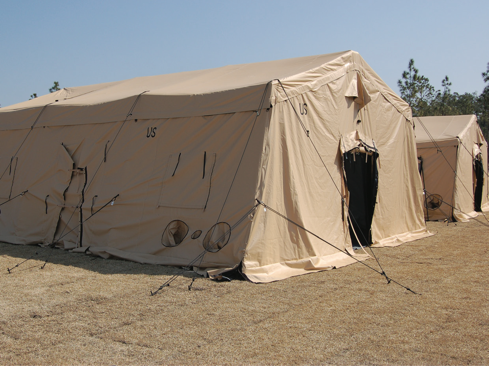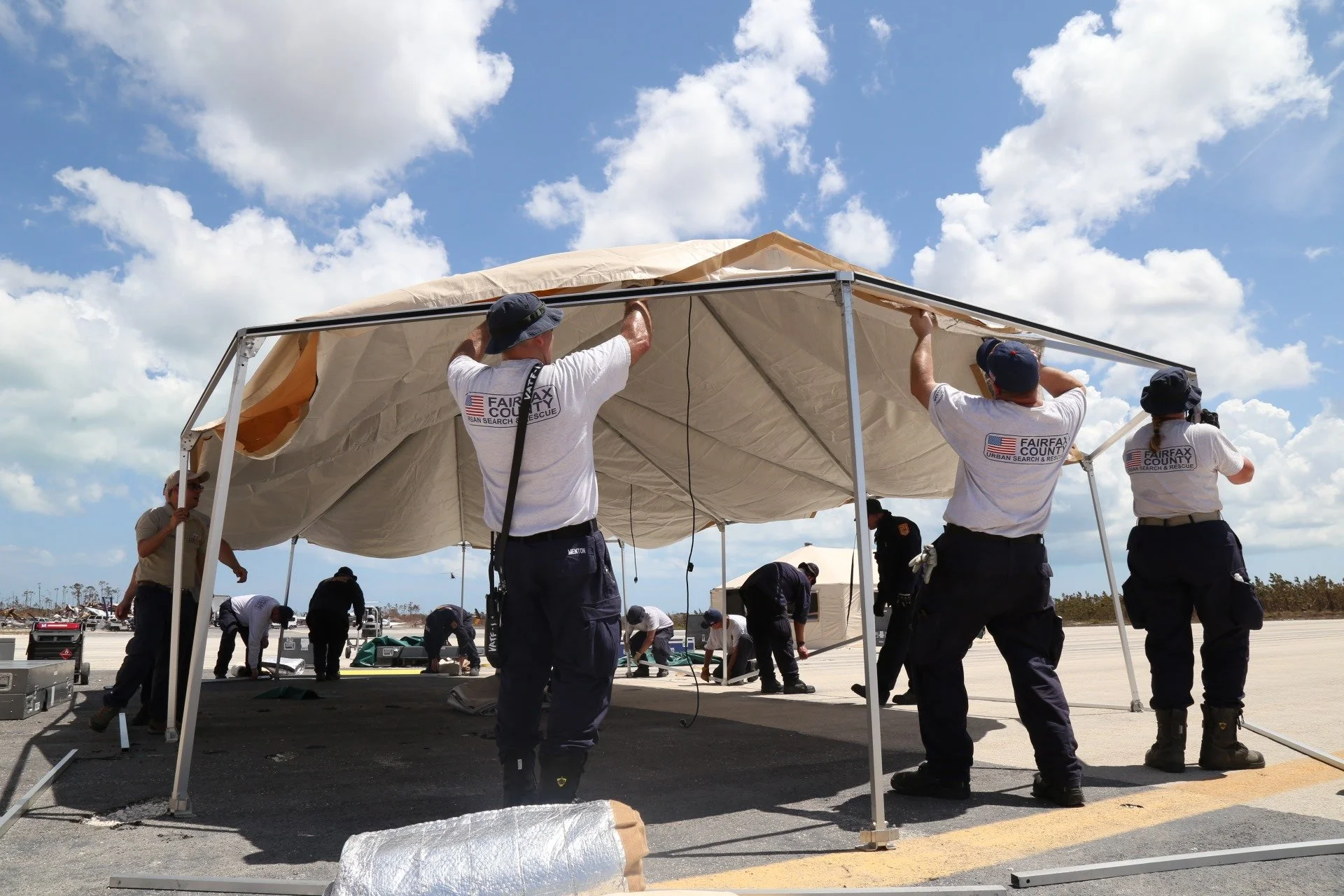When it comes to choosing the right shelter system, the decision often boils down to one key factor: rigid vs soft walled. Both types of shelters have unique benefits and provide effective solutions in different scenarios. This guide aims to help you understand these two types of shelter systems, their benefits, and how to make an informed decision based on your specific needs.
DoD's Use of Shelter Systems
The DoD utilizes both rigid and soft-walled shelter systems in various operations. Rigid-walled shelters, due to their durability and security, are often deployed in long-term military bases and command centers. They provide a robust structure that can withstand severe weather conditions and potential threats, ensuring the safety of the personnel inside.
These shelters are also customizable, allowing for the integration of essential items such as heating, lighting, and air conditioning features. This adaptability makes them ideal for housing personnel during deployment, serving as field hospitals, or operating as mobile control centers during expeditionary missions.
On the other hand, soft-walled shelters have value in their portability and rapid deployment capabilities. These shelters often get used in training exercises and disaster relief operations where speed and mobility are of the essence. These lightweight shelters can be set up in minutes, providing immediate protection and support to the forces on the ground. If you want to learn more about Western Shelter’s relationship with the DoD, click here.
Emergency Services and Shelter Systems
Emergency Services also make extensive use of both rigid and soft-walled shelter systems. In the aftermath of a disaster, these shelters provide immediate, temporary accommodation for displaced people. Soft-walled shelters, in particular, are ideal for this purpose due to their quick setup time and portability.
Rigid-walled shelters, on the other hand, are often used as temporary medical facilities or command centers during disaster response. Their robust structure provides a secure and stable environment for medical personnel to treat the wounded and for rescue teams to coordinate their efforts. If you want to see an example of Western Shelter in use during a disaster situation, click here.
The Benefits of Rigid Walled Shelters
Rigid-walled shelters are robust structures designed for long-term deployment. These shelters typically act as permanent or semi-permanent bases, support centers, and storage facilities. They can withstand harsh weather conditions and provide a high level of security and protection.
One of the main benefits of rigid-walled shelters is their durability. These shelters are designed to last years, even in the most challenging environments. They are resistant to wind, rain, and snow, making them an excellent choice for military operations, expeditionary camps, and other long-term deployments.
Rigid-walled shelters also offer a high level of comfort and convenience. You can equip them with power systems, heating and cooling systems, and other amenities to make the occupants' stay as comfortable as possible. Furthermore, rigid-walled shelters provide ample space for storage, equipment, and personnel.
Western Shelter stands as a premier manufacturer of mobile shelters, offering a diverse product line tailored to various industries. Our Mobile Expandable Container System (MECS), ECS-90, and Containerized Shelters are all versatile and highly effective shelter solutions.
MECS: Rapid Deployment and Durability
The MECS is a shelter solution that combines rapid deployment with robust construction. Two individuals can set it up in less than 10 minutes, making it a reliable choice for quick operations. Crafted from high-quality materials, the MECS can endure harsh weather conditions and is resistant to fire, wind, and rain. Moreover, its energy efficiency can contribute to significant savings on energy costs.
ECS-90: Long-Term Use and Adaptability
Western Shelter's Expandable Container System (ECS-90) is a groundbreaking platform that has revolutionized the concept of deployable shelters. This innovative product combines the advantages of rapid deployment with the resilience to withstand extreme weather conditions and the long-term durability of a rigid-walled structure. It's a proven solution, scientifically tested to ensure it meets the highest standards of quality and performance.
Containerized Shelters: Modified for Safety and Security
Western Shelter's containerized shelters are repurposed shipping containers designed to provide a safe and secure environment. Available in various sizes and configurations, they can serve multiple applications, including offices, classrooms, and dormitories.
All of Western Shelter's systems adhere to the highest quality and durability standards. They come with a comprehensive warranty and a variety of customization options to meet your specific needs.
Pros:
Durable
Last Longer
Easy to Transport Globally
Some Solutions Can Expand
Can Stack Up to 9 Shelters High
Cons:
Heavy
More expensive Compared to Soft-Walled
The Benefits of Soft-Walled Shelters
On the other hand, soft-walled shelters are lightweight, flexible structures designed for rapid deployment and mobility. These shelters often act as temporary bases, emergency response, and mobile operations.
One of the main benefits of soft-walled shelters is their portability. These shelters can be packed into compact components, making them easy to transport and set up in a matter of minutes. This makes them an ideal solution for situations where speed and mobility are crucial.
Soft-walled shelters are also versatile. You can use them in a variety of scenarios, from providing temporary accommodation for displaced people in disaster-stricken areas to serving as mobile command centers in military operations. Moreover, soft-walled shelters can adapt to suit different needs, with options for adding partitions, doors, windows, and other elements.
GateKeeper Shelters: Versatility and Durability
The GateKeeper series of shelters are known for their versatility and durability. We designed these shelters to withstand harsh environments and provide reliable protection in the field. The GateKeeper shelters are easy to deploy, requiring minimal tools and components, making them a convenient choice for organizations that need to quickly set up a secure space.
Guardian Shelters: Climate-Controlled Comfort
The Guardian shelters, on the other hand, are designed with comfort in mind. These shelters are climate-controlled, providing a comfortable environment regardless of the external weather conditions. This makes them ideal for DoD operations. With the Guardian’s infinite scaling in length along with the high performance thermal liner kit, you know you’ll be ready for the elements with this military-grade shelter.
RDS Shelters: Rapid Deployment and Adaptability
The RDS (Rapid Deployment Shelters) is perfect for situations where speed is of the essence. These shelters deploy quickly, providing immediate protection and support in emergencies. Despite their rapid deployment, these shelters do not compromise on durability or security, making them a reliable choice in critical situations.
All of Western Shelter's systems are field-proven and tested to ensure they meet the highest standards of quality and durability. All of the shelters have a comprehensive warranty and come with a variety of customization options to meet the specific needs of your organization.
Pros:
Lighter in Weight
Easy to Transport
Versatile
Can Connect to Create Larger Shelter Systems
Cost-Effective
Cons:
Not As Durable
More Susceptible to Extreme Conditions
Whether you need a versatile shelter like the GateKeeper, a climate-controlled space like the Guardian, or a rapidly deployable solution like the RDS, Western Shelter has a shelter solution to meet your needs.
How to Make a Decision
Choosing between rigid and soft-walled shelter systems depends on your specific needs and circumstances. If you require a durable, long-lasting shelter that can withstand harsh conditions and provide a high level of comfort and security, a rigid-walled shelter may be the best choice. On the other hand, if you need a lightweight, flexible shelter that can be quickly deployed and easily transported, a soft-walled shelter may be more suitable.
Consider factors such as the intended use of the shelter, the environment in which it will operate, the duration of the deployment, and the resources available for transport and setup. By taking these factors into account, you can make an informed decision and choose the shelter system that best meets your needs.
Training
One of the key benefits of working with Western Shelter is we provide training with all of our products to help you when the mission needs it the most. You can feel prepared to know you’ll have all the skills to deploy one of our shelters even in the most austere conditions.
A great way to receive this training is by booking a trip to Western Shelter HQ. By doing this, you’ll be able to learn all about our many capabilities and receive hands-on learning on how to deploy and utilize the shelters and accessories that will lead you to mission-critical success.
You can read all you want about one of our shelters, but there is no better way than to put your hands on a GateKeeper and learn to set it up for yourself. That’s where we come in, the protective solution and coach to help you and your team protect and perform in the worst scenarios on the planet. We ensure nothing comes to chance and that you are prepared for anything.
Contact Us
To learn more about what Western Shelter can do for you or to book a training session with one of our sales representatives, contact us at sales@westernshelter.com or call 541-344-7267. We’ll be happy to help you accomplish your protective needs. Whatever your mission and whatever your challenge, Western Shelter will get you to complete mission-critical success.






